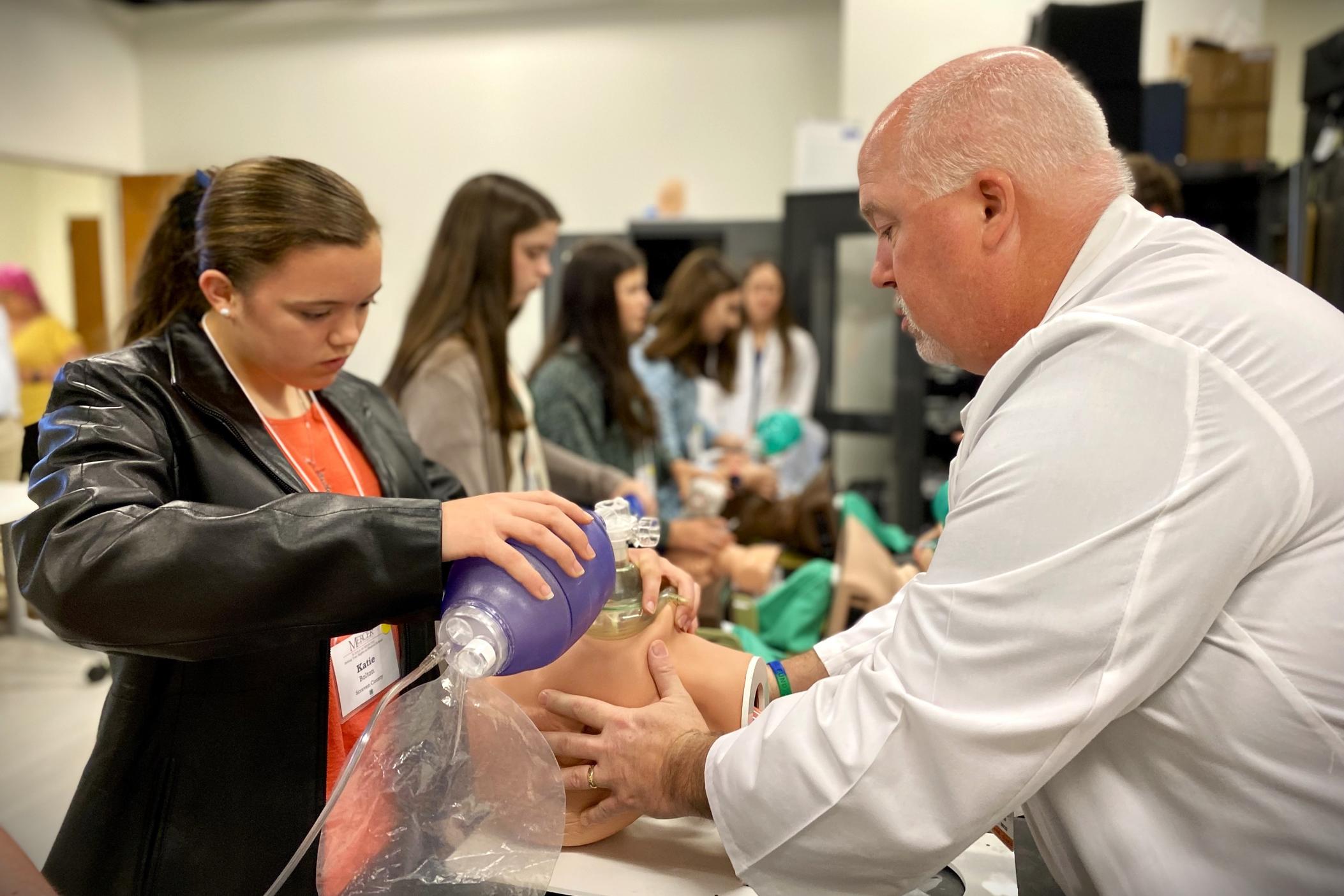Section Branding
Header Content
‘Georgia needs you’: Amid doctor shortage, Savannah med school workshop aims to inspire rural teens
Primary Content
Dr. Jane Kirkpatrick's message to a conference room full of rural Georgia high schoolers was loud and clear.
“We are doing our best to train up doctors who want to practice in rural and underserved areas, because there is such a huge need for physicians in our communities,” the internist and Mercer University School of Medicine (MUSM) admissions director told them at the institution's Savannah campus. “And so, I'm glad you're here.”
Having made the trek from eight counties across Southeast Georgia, a couple dozen high school students were eager to get a glimpse into the demanding world of medical school — and the school, in turn, was eager to show them.
Launched in 2016 to help Georgia address its rural physician shortage, MUSM's teen workshop (dubbed “Setting Your Sights on Med School”) ushers aspiring doctors through a series of hands-on activity stations.
No station is quite as hands-on as the “sim lab” — an ER of sorts for medical mannequins where, during this year's installment, students got to try their hand at bag-valve-mask ventilation.
After that, it was time to watch MUSM assistant director of medical simulation Joe Slattery attempt a trickier procedure: intubation.
“With this technique, I'm going to take the laryngoscope and go into the airway, so I can see straight down into the trachea,” Slattery said during his demonstration. “I'm gonna lift up the patient's jaw. You see how I'm moving the tongue away?”
Ninth-grader Katie Bolton found the life-saving measure fascinating.
“It was also cool to see how to do it, rather than watching it on a screen or something,” she said.
It's rural areas like Bolton's Screven County — about an hour's drive north of Savannah — where MUSM is hoping to recruit more students from.
If the institution's freshman class last year is any indication, then its outreach efforts appear to be working: 70% of those doctors-in-training hail from outside of the Atlanta metropolitan area. (Mercer admits only Georgia residents to its medical school.)
“When our dean began working here about eight years ago, we had students from rural areas, but it certainly wasn't a majority,” said MUSM administrator Be-Atrice Cunningham. “We have since refocused our mission.”
Even with the medical school's recent gains in rural recruitment, Georgia's less-populated areas “continue to be in dire need of physicians,” Cunningham said, adding that nine rural counties do not have a single practicing doctor.
Those areas, plus about 100 more rural counties in the state, are classified by the federal government as medically underserved by primary care physicians.
“We need you,” Cunningham told the high schoolers. “And, of course, Georgia needs you, as well.”
Kirkpatrick, herself a Georgia native and longtime rural physician, agreed wholeheartedly: “There's no greater job on the planet than to have the privilege to take care of a human life.”


